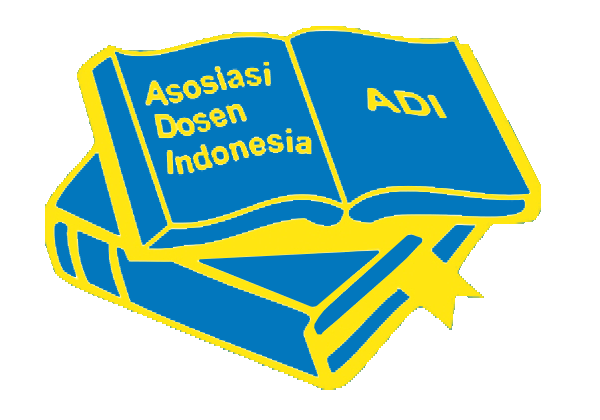Self-Esteem And Psychological Wellbeing Of Secondary Students In Anambra State, Implication For Sustainable Mental Health And Student Engagement
DOI:
https://doi.org/10.22373/edj.v2i2.6040Keywords:
Self-Esteem, psychological wellbeing, mental health, student engagement, genderAbstract
he study investigated self-esteem and psychological wellbeing of secondary school students in Anambra State, implication for sustainable mental health and student engagement. A correlational research design was employed for the study. The study was guided by two research questions. The population of the study comprised 20,889 senior secondary two (SS2) students (M= 9,411 and F=11,478) from public secondary schools in Anambra State. The sample for this study comprised 763 SS 2 students made up of 396 males and 367 females, drawn using multistage sampling procedures. For the data collection, the researcher adapted two sets of instruments namely; the Self-Esteem Evaluating Rating Scale (SEERS) developed by Gopal (2016), and the Psychological Well-being Scale (PWS) developed by Ryff (1989). The face validations of the instruments were established by three experts. The internal consistency of the items for each instrument was determined using Cronbach Alpha and coefficient values of 0.81 was obtained for self-esteem, and 0.86 for psychological well-being. The collected data were analyzed using multiple regression analysis. The study also showed that self-esteem and psychological well-being are strong predictors of sustainable mental health of male senior secondary school students in Anambra state, while a moderate predictor of the sustainable mental health of female senior secondary school students in Anambra state. The study suggests that enhancing student engagement through strengthening self-esteem and psychological well-being could promote sustainable mental health. Based on the findings, it was recommended among others that, Post Primary School Service Commission should train and post qualified guidance counselors to secondary schools to help senior secondary school students strengthen their self-esteem and psychological well-being for enhancement of a sustainable mental health
References
Amalu, M.N. (2017). Family environment and self esteem as predictors of psychological adjustment of secondary school students from divorced homes in Cross River State, Nigeria. Journal of Research and method in education, 7(6), 9-16.
Davies, T. (2019). What is well-being? Definitions, types, and well-being skills. Retrieve from www.psychologytoday.com.201901
Dogan, T., Totan, T. &Sapmaz, F. (2013).The role of self-esteem, psychological well-being, emotional self-efficacy, and affect balance on happiness: A path model.European Scientific Journal, 9(20), 31-42.
Eremie, M.D. &Chiikweru, A.E. (2015). Self-esteem among private and public secondary students in Rivers State: Implication for counseling. Kuwait Chapter of Arabian Journal of Business and Management Review, 4(11), 1-6.
Gopal, S. (2016). Developing self esteem and a positive attitude. Retrieved from www.slideshare.net.>gopalswam1>self-...
Howith, M. & Cranner, C. (2011). Introduction to psychological tests. Boston: Allyn and Bacon.
Johan, B. (2018) Suicide and Youth: Risk factors. Mental health and wellbeing research group. Department of Public Health, Vrije University, Brussel, Brussels, Beligium. doi:/03389/fpsyt2018.00540
McLeod, S.A. (2020). Low self esteem-simply psychology. Suicidal tendencies in Nigerians teens- is it really shocking? www.covnantrelationship.org assessed.
Mocheche, E.K., Bosire, J. &Raburu, P. (2017). Influence of self-esteem on job satisfaction of secondary school teachers in Kenya. International Journal of Advanced and Multidisciplinary Social Studies, 3(2), 29-39.
Nworgu, B.G. (2006) Educational Research; Basic Issues and Methodology. Windon Publishers Ltd., Ibadan.
Orth U., Robins R.W., Widaman K.F,. (2017). Life-span development of self-esteem and its effects on important life outcomes. J Pers Soc Psychol. 2012;102(6):1271–1288. doi: 10.1037/a0025558.
Orth, U., Robins, R.W. & Roberts, B.W. (2014). Low self esteem preoperatively predicts depression predicts depression in adolescence and young adulthood. Journal of Personality and Social Psychology, 95(3), 695-708. Available at Doi:10:1037/0622-3514.953.695.
Owens, T.J., Sheldon, V. &Goodman, P.(2011). Extending self-esteem theory and research: Sociological and psychological currents. Retrieved from amazon.com/extending-self-esteem-theory-research psychological/dp10571630886.
Ryff, C. D. (1989). Happiness is everything, or is it? Explorations on the meaning of psychological well-being. Journal of Personality and Social Psychology. 57(6), 1069-1081.
Sama A (2016) . A Study of Mental Health and Psychological Well Being among Teachers and Lecturers.Iinternational Journal of Indian Psychology ISSN 2348-5396 (e) | ISSN: 2349-3429 (p) Volume 3, Issue 3, No. 8, DIP: 18.01.137/20160303 ISBN: 978-1-365-12176-0
Sarkova, M. (2010). Psychological well-being and self-esteem in Slovak adolescents. Unpublished Masters Thesis. University of Groningen
Satnam K. J,.&Pooja (2016). Relationship between Mental Health and Psychological Well Being of Prospective Female Teachers. Journal of Research & Method in Education -ISSN: 2320–7388, Volume 6, Issue 1 Ver. II
Shamsul, S. (2018). Impact of self-esteem and efficacy on psychological well- being among undergraduates students. The International Journal of Indian Psychology, 2(3), 6-16.
Singhal S and Prakash N.(2020) , relationship between sels esteem and psychological well being among indian college students.Journal of Interdisciplinary Cycle Research. Volume XII, Issue VIII, August/2020. ISSN NO: 0022-1945. Page No:748
Sosa, M. V., Chin, E., & Sethares, K. A. (2024). Perspectives Regarding Engagement in Physical Activity in Women: Traditional Gender Role–Based Themes. Journal of Cardiovascular Nursing, 10-1097.
Tahir, M. W., Störmer, M., & Zafar, M. (2022). Changing gender role behaviors of South Asian men in different gender regimes: A comparative study of COVID‐19 lockdown in Pakistan and Germany. Journal of Public Affairs, 22, e2797.
Trudei-Fitzgerald, C., Mulstein, R.A. & Von, H.C. (2019). Psychological wellbeing as part of the Public Health department? Insight into dimensions, interventions and policy. BMC Public Health 19(1), 12-17.














